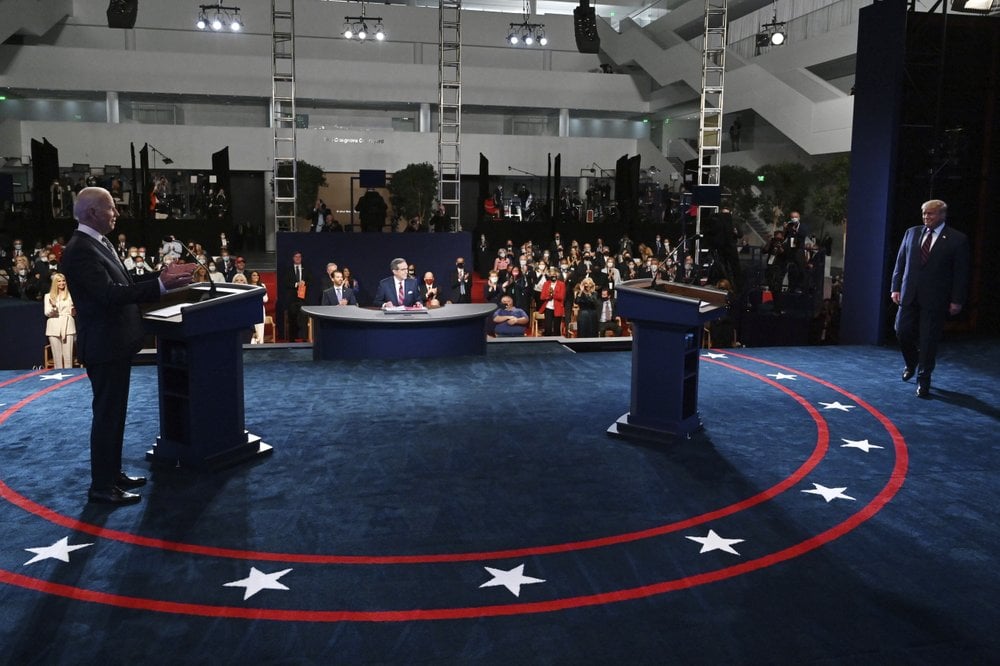Presidential Debate Schedule and Format

The upcoming presidential debates are highly anticipated events, offering voters a platform to evaluate the candidates and their stances on critical issues. The debates are carefully structured to provide a balanced and informative discussion.
Debate Schedule and Locations
The Commission on Presidential Debates (CPD) is responsible for organizing and hosting the presidential debates. Here is a table outlining the dates, times, and locations of the upcoming debates:
| Debate | Date | Time (ET) | Location |
|---|---|---|---|
| First Debate | [Date] | [Time] | [Location] |
| Second Debate | [Date] | [Time] | [Location] |
| Third Debate | [Date] | [Time] | [Location] |
Debate Format
Each debate typically follows a structured format, designed to facilitate a comprehensive discussion of key issues. The format may vary slightly from debate to debate, but generally includes the following components:
- Opening Statements: Each candidate is given a specific amount of time to deliver an opening statement, outlining their vision and priorities. This allows candidates to set the tone for the debate and introduce their key themes.
- Moderator-Led Questions: A moderator, typically a journalist or political commentator, poses questions to the candidates on various topics. These questions are designed to elicit in-depth responses and highlight areas of agreement or disagreement.
- Candidate Rebuttals: Candidates are given opportunities to respond to each other’s statements, allowing for direct engagement and debate. This section encourages candidates to defend their positions and challenge the opposing viewpoints.
- Closing Statements: Similar to the opening statements, candidates are given a brief time to deliver closing remarks, summarizing their key points and appealing to voters.
Debate Rules and Guidelines, What time is presidential debate
To ensure a fair and orderly debate, the CPD establishes a set of rules and guidelines. These rules govern various aspects of the debate, including:
- Time Limits: Candidates are allocated specific time limits for their opening and closing statements, responses to questions, and rebuttals. This ensures that all candidates have equal opportunities to present their views and engage in the debate.
- Interruptions: Interruptions are generally discouraged, and the moderator may intervene to restore order if necessary. However, candidates are allowed to respond directly to each other’s statements within the designated time limits.
- Audience Participation: Audience participation is typically limited, with questions often submitted in advance or selected by the moderator. The focus remains on the candidates’ direct interaction and engagement.
Key Issues and Talking Points: What Time Is Presidential Debate

The upcoming presidential debate is expected to focus on a range of critical issues that are top of mind for American voters. These issues reflect the nation’s current challenges and will likely shape the candidates’ platforms and policy proposals.
Economy
The state of the economy is a perennial issue in presidential debates, and this year is no different. The candidates will likely discuss topics such as inflation, unemployment, and economic growth.
The incumbent president will likely highlight the economic recovery from the COVID-19 pandemic, pointing to job creation and GDP growth as evidence of success. They might also emphasize their policies that have contributed to this recovery, such as tax cuts or infrastructure spending.
The challenger, on the other hand, might argue that the economic recovery has been uneven, with certain sectors and demographics lagging behind. They might criticize the incumbent’s economic policies, arguing that they have benefited the wealthy at the expense of the middle class and working families. The challenger might also propose alternative policies to address inflation and income inequality.
Healthcare
Healthcare is another major issue that will likely be debated. The candidates will likely discuss the affordability and accessibility of healthcare, as well as the role of government in providing healthcare.
The incumbent president might emphasize the expansion of health insurance coverage under the Affordable Care Act (ACA) and highlight their efforts to lower prescription drug costs. They might also discuss their plans to address the rising costs of healthcare, such as negotiating lower drug prices or promoting competition among insurance providers.
The challenger might argue that the ACA has not gone far enough in addressing the needs of Americans, and they might propose expanding Medicare or creating a single-payer healthcare system. They might also criticize the incumbent’s record on healthcare, arguing that they have not done enough to control costs or improve access to care.
Education
Education is a critical issue for many voters, particularly those with children. The candidates will likely discuss topics such as school funding, teacher salaries, and access to quality education.
The incumbent president might highlight their support for increased school funding, particularly for early childhood education and programs that promote STEM education. They might also emphasize their efforts to improve teacher training and compensation.
The challenger might argue that the incumbent has not done enough to address the challenges facing public schools, such as teacher shortages and inadequate funding. They might propose increasing federal funding for education, investing in teacher training and development, and promoting policies that promote equity in education.
Climate Change
Climate change is an increasingly important issue for voters, especially younger generations. The candidates will likely discuss topics such as the government’s role in addressing climate change, the need for renewable energy, and the importance of environmental protection.
The incumbent president might highlight their record on environmental protection, pointing to policies such as the Paris Agreement and investments in renewable energy. They might also emphasize the importance of economic growth and job creation in addressing climate change.
The challenger might argue that the incumbent has not done enough to address the urgency of climate change and might propose more ambitious policies to reduce greenhouse gas emissions, transition to renewable energy, and protect the environment. They might also criticize the incumbent’s record on environmental regulations and their reliance on fossil fuels.
Media Coverage and Public Reaction

The presidential debates are a significant event in the American political landscape, attracting intense media scrutiny and shaping public opinion. The debates offer a platform for candidates to directly address the electorate, present their policy positions, and engage in a public discourse on critical issues. The media coverage and public reaction to these debates play a crucial role in influencing the outcome of the election.
Television Coverage
Television networks will dedicate extensive coverage to the debates, providing live broadcasts and in-depth analysis. Major networks such as ABC, CBS, NBC, CNN, and Fox News will offer multi-platform coverage, including live streaming, social media updates, and post-debate discussions. The debates are expected to be a major ratings draw, attracting a large audience across various demographics. The televised debates provide a visual and auditory experience that allows viewers to assess the candidates’ demeanor, communication skills, and policy positions.
Online Platforms and Social Media
Online platforms and social media will play a significant role in shaping the narrative surrounding the debates. News websites, blogs, and social media platforms will provide real-time updates, commentary, and analysis. Social media will be a hub for public discourse, with users sharing their opinions, reactions, and interpretations of the debates. The online environment will also facilitate the spread of memes, gifs, and other forms of digital content that reflect the public’s perception of the candidates and the debate itself.
Public Opinion and Voter Sentiment
The debates can have a significant impact on public opinion and voter sentiment. The candidates’ performance, the issues discussed, and the overall tone of the debates can sway undecided voters and reinforce existing opinions. For example, the 2016 presidential debates between Hillary Clinton and Donald Trump were widely analyzed for their impact on voter sentiment, with some polls suggesting that the debates had a significant influence on the outcome of the election.
Influence on the Election Outcome
The debates can influence the outcome of the election by shaping public opinion, mobilizing voters, and potentially altering the race dynamics. The debates provide a crucial opportunity for candidates to connect with voters, present their policy positions, and differentiate themselves from their opponents. The debates can also highlight key issues that resonate with voters and influence their decision-making process.
What time is presidential debate – The timing of the presidential debate is crucial for voter engagement and media coverage. However, beyond the immediate political landscape, it’s essential to consider the long-term implications of policies like the 2025 social security cola increase , which will impact the lives of millions of Americans.
The debate provides a platform for candidates to articulate their vision for addressing such complex issues, ultimately shaping the future of the nation.
The time of the next presidential debate is a key factor for many voters, as it allows them to engage with the candidates’ platforms and positions on critical issues. This event also serves as a platform for individuals like Robert F.
Kennedy Jr , a prominent figure in the political and environmental spheres, to voice their opinions and potentially influence public discourse. The timing of the debate, therefore, plays a crucial role in shaping the political landscape and the national conversation.
